I’m a Veterinarian and These Are the 4 Cat Breeds I’d Never Own
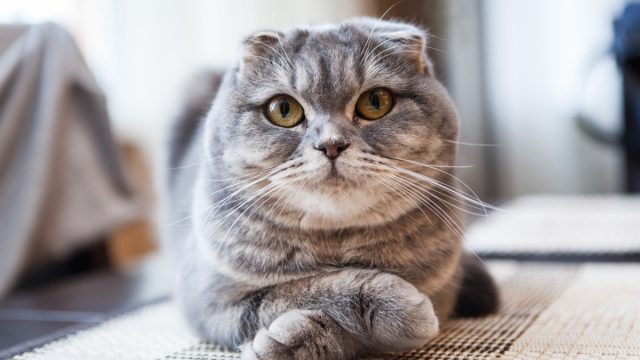
If you’ve thought about getting a cat because they’re more low-key than dogs, you may want to think again. Of course, they don’t require daily walks and often aren’t as energetic as their canine companions, but certain cat breeds can still be a handful—especially if they’re susceptible to health issues or have difficult temperaments. With that in mind, UK-based veterinary surgeon Ben The Vet shared in a TikTok video which cat breeds he would never own. Read on to learn more about them.
RELATED: I’m a Dog Trainer and I’d Never Own These 5 Breeds “Unless My Life Depended on It”
4
Bengal
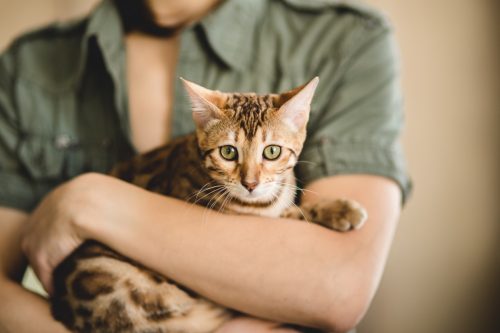
Ben says the first cat he won’t own is the Bengal. “I can see why people like them,” he explains. “But what a lot of people aren’t aware of is that they’re a hybrid between a type of wildcat, called an Asian Leopard Cat, and domestic cat breeds, so they’re still quite wild in terms of their behavior and temperament.”
Therefore, Ben notes that they can be aggressive at the vet and even quite dangerous to handle.
3
Sphynx
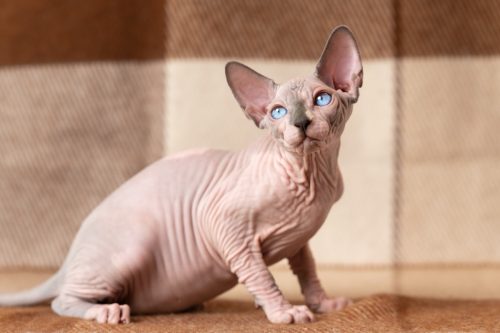
The Sphynx cat is most commonly known for its lack of fur and pronounced “bone structure and musculature,” according to pet brand Purina. And while Ben says that they’re nice cats, he prefers “to cuddle a fluffy cat.”
However, Purina does note that Sphynx cats are a bit high-maintenance when it comes to staying entertained: “They are extremely outgoing, crave attention, and will want to be involved in everything you do, to the point of potentially being irritating and in the way.”
Purina also shares that they’re not great with young children and that, unlike cats with fur, they need regular bathing.
RELATED: Seeing Stray Cats in Your Yard? Here’s Why They’re Lurking Around Now.
2
Scottish Fold Cat
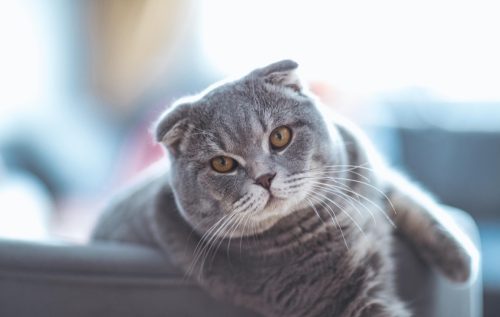
Scottish Folds are hard to resist thanks to their cute, curly ears. However, Ben puts them on his won’t-own list because this distinctive feature is related to a cardiac disorder called “osteochondrodysplasia.”
According to International Cat Care, osteochondrodysplasia is “a general term for a disorder of the development of bone and cartilage.” While the condition causes the defect in their ears, it “also causes severe abnormalities of the cartilage of bones.” Unfortunately, these cartilage problems can lead to more severe concerns like arthritis.
Ben believes it’s “cruel and unfair… [to] support their breeding.”
RELATED: This Is the Only Time You Should Give Your Cat a Bath, Vets Say.
1
Persian Cat
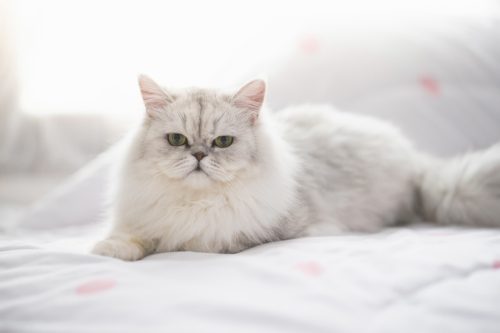
The number one cat Ben won’t own is a Persian. “That is because of how flat their faces are, and how many issues that causes them with regards to health and their day-to-day life.” he says.
Similar to dog breeds like Frenchies and Bulldogs, Persian cats have a “genetically bred snub nose that makes this breed at risk for Brachycephalic issues,” note the experts at VCA Animal Hospitals.
“People don’t realize they can struggle to breathe just as badly as some of the flat-faced dog breeds,” says Ben “And that’s for the same reasons on the whole: Their nostrils are too small, all the bones in their nasal passages are crowded together, and they have a too long soft pallet at the back of their throat.”
In addition to breathing problems, they also suffer from vision problems and, according to International Cat Care, “Persians can carry a gene that leads to kidney failure… through the development of cysts in the kidney.”
For more pet advice delivered straight to your inbox, sign up for our daily newsletter.